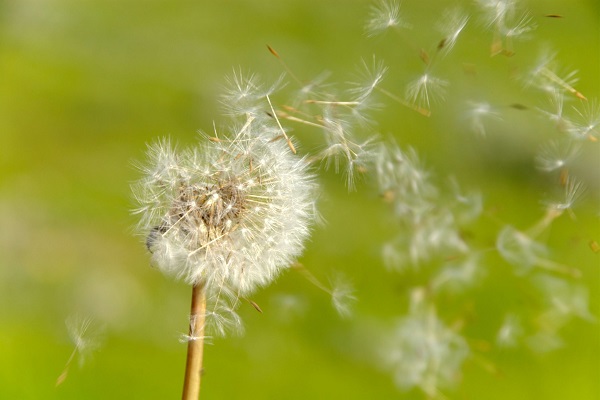|

In the Jewish tradition, impermanence is a constant. For instance, during the upcoming holiday of Sukkot, we must dwell in flimsy huts for seven days to remember the days when we were wanderers in the desert and depended completely on the goodwill of the Infinite One. We repeat this tradition in a very physical way in order to connect with the experiences of our ancestors and with the essence of the teachings of the holiday. This ritual which is associated with Sukkot, teaches us how to accept impermanence and how to ground ourselves in the midst of what seems to be a fragile state of affairs.
Picture this; for seven days we are commanded to dwell inside a hut made up of three walls and a roof with very little coverage - we must be able to see the stars, so the coverage on the roof needs to be minimal. We are completely at the mercy of the elements of nature; rain, wind, sun and whatever else comes. In this unstable and fragile accommodation, we must eat, spend time learning, and even sleeping. The idea is that The Infinite One will protect us and provide for, no matter what comes our way. We must trust this idea with all of our heart and mind, and not worry about anything at all. We are invited to simply enjoy our time inside the Sukka, the frail hut, without a care in the world.
Impermanence - and we must extend this affirmation to encompass the concept of change - is the only thing that is permanent in our lives. The earlier we come to terms with this fact, the happier and less stressed we will be. Early on in my life, I became used to moving from place to place for that was my family's M.O. at the time. I carried on this family tradition by leaving home at a very early age in order to pursue my dream of becoming a world class swimmer. Moving geographically was one sure way to embrace impermanence, but there were others imbedded in my life as a nomad such as: Being open to new ideas, to changing schools, to making new friends, to changing majors in college - four times to be precise, etc.
In my opinion, being curious is the golden ticket to embrace impermanence gracefully. In essence, being a curious person will allow you to look at everything with eyes of possibility and wonder. It will also allow you to find a way out of any unpleasant situation and look for the proverbial silver lining when life is not so sunny. Walk the path of impermanence with curiosity as your companion, and life will reward you greatly - that's my motto.
To be mindful of impermanence is also to acknowledge that life as we know today, might shift and change tomorrow. Before you jump into a depressive state, or go into control freak mode and think that you don't want your life to change at all, stay with me for a second, will you? My argument is that this realization has a wonderful consequence in our lives; it makes us appreciate all that we have and treat it with much love, care and respect. Let's assume your life is great; you are healthy, have a great family, a fulfilling job, a decent salary, travel sometimes, etc. Good! Appreciate the moment, tell your friends and family how much you love them, smile more, be respectful of all beings, be kind to yourself, sympathize with the struggles of other's and help them however you can, take more time off, and the list goes on and on... Bottom line is, impermanence makes us live in the present! To me that is the most incredible gift.
Impermanence, like change, is one of those words that we might feel ambivalent about. It may even bring up a sense of dread and doubt at first. However, if we look at it as a tool to helps us stay in the present moment, it can be so useful that we would not want to live without it! We would make peace with it and see it for what it is; a valuable instrument that strips away the illusion of control, and all the weight it comes with it, and that invites us to live with the certainty of trust in the flow of life and in ourselves.
With energy,
Ana
|